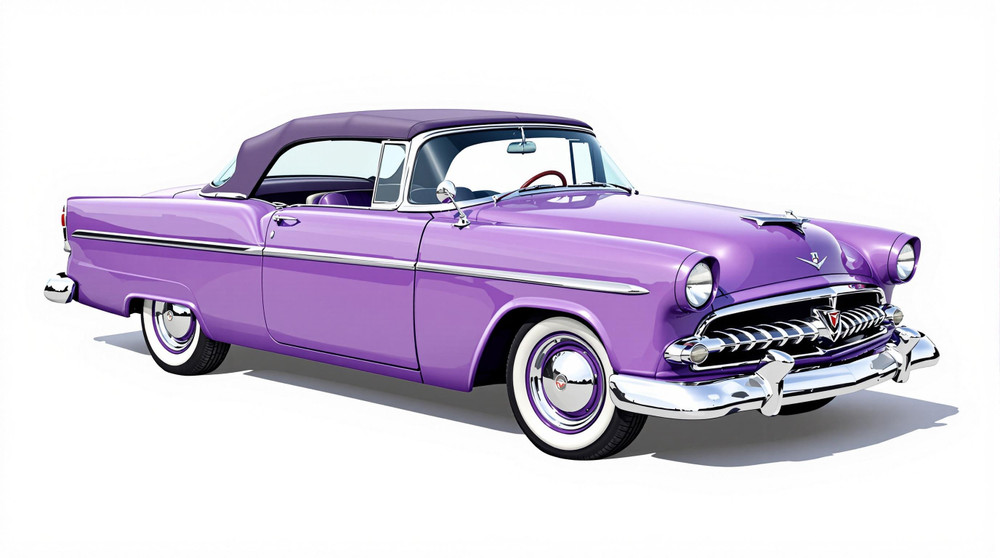Image of 1955 Plymouth Belvedere, Note: These illustrations use artistic license and may differ from actual historical models.
Performance Metrics
Fundamental Metrics
Emotional Appeal
MMP Rating
| Engine Specifications | |
|---|---|
| Engine: | 230 cubic inch inline-six, 241 cubic inch V8, 260 cubic inch V8 |
| Displacement: | 230-260 cubic inches |
| Horsepower: | 110-167 hp |
| Torque: | 180-225 lb-ft |
| Compression Ratio: | 7.6:1 - 8.5:1 |
| Ignition System: | Distributor and coil |
| Cooling System: | Liquid-cooled |
| Performance Specifications | |
| 0-60 Time: | 12-15 seconds |
| 1/4 Mile Time: | 18-20 seconds |
| Top Speed: | 90-100 mph |
| Transmission and Drive | |
| Drive Type: | Rear-wheel drive |
| Transmission Type: | 3-speed manual, 2-speed PowerFlite automatic |
| Fuel and Efficiency | |
| Fuel System Type: | Carburetor |
| MPG: | 10-15 mpg |
| Dimensions and Brakes | |
| Brakes: | Drum brakes |
| Wheelbase: | 115 inches |
| Weight: | 3,200-3,500 lbs |
Note: Specifications for classic cars are given to the best of our ability, considering the limited and variant data available.
1955 Plymouth Belvedere: A Quintessential American Classic
The 1955 Plymouth Belvedere emerged during a time of post-war prosperity, where automotive design was as much about making a statement as it was about transportation. As a product of the Plymouth division of Chrysler Corporation, the Belvedere represented a new wave of American style and engineering. This vehicle was not only a symbol of its era but also a harbinger of the forward-thinking designs that would come to define the decade. A standout moment in its history was when it became the pace car for the Indianapolis 500 in 1954, cementing its place in automotive lore.
Design and Innovation
The exterior of the 1955 Plymouth Belvedere was a feast for the eyes, with its sleek lines, chrome accents, and two-tone paint jobs that captured the optimism of the mid-50s. The car's front grille, with its bold, jet-inspired design, and the tail fins that hinted at rocketry and space exploration were particularly evocative. Inside, passengers were treated to a spacious cabin adorned with high-quality fabrics and chrome details. Technological features like power steering and Plymouth's first V8 engine option, the "Hy-Style" 260 cubic inch (4.3L) powerhouse, were cutting-edge at the time. Color options ranged from classic black and white to more adventurous shades like aquamarine, with two-tone combinations being especially popular among buyers. Body styles included sedans, hardtops, convertibles, and station wagons, with the hardtop coupe often celebrated as the most iconic.
Historical Significance
The Belvedere's impact on automotive design was profound. It introduced features that would become staples in later models, such as wraparound windshields and full-width rear lamps. Its blend of affordability and luxury set it apart from competitors and influenced subsequent generations of family cars. The Belvedere's lasting influence is evident in how it bridged the gap between practicality and aspiration in American automotive culture.
Performance and Handling
Performance-wise, the 1955 Belvedere's V8 engine could propel it to respectable top speeds for its time, while its acceleration from 0-60 mph was competitive with other vehicles in its class. Handling was enhanced by improved suspension systems that absorbed road imperfections better than previous models. Drivers often remarked on the smoothness of the ride and the responsiveness of the engine—experiencing a symphony of mechanical harmony when cruising down open roads.
Ownership Experience
The Belvedere served many roles—from a dependable family car to an attention-grabbing showpiece at classic car rallies. Its reliability was one of its strong suits, though as with any vehicle from this era, maintenance is key to preserving performance. Parts are generally accessible for enthusiasts looking to keep their Belvederes in top condition.
Fun Facts
This classic has seen its share of limelight with rare editions like the 'Highway Hi-Fi' record player option adding to its allure. Celebrity ownerships have also added to its pedigree. While it may not hold speed records, it certainly has made an indelible mark on automotive history books.
Collector's Information
Today, a well-maintained 1955 Plymouth Belvedere can fetch anywhere from mid-five figures up into six-figure territory depending on condition and originality—testament to its desirability among collectors. While production numbers were substantial for their time (estimates suggest tens of thousands across all body styles), finding one in pristine condition can be challenging. The market trend shows appreciation for this model as nostalgia for 50s Americana continues to grow.
Conclusion
The 1955 Plymouth Belvedere stands as an icon of mid-century American automotive innovation—a testament to design prowess and engineering excellence that continues to captivate enthusiasts around the world. Its legacy endures not just as a relic of bygone days but as a cherished collectible that still turns heads and stirs hearts.
1955 Plymouth Belvedere Catalog of Parts
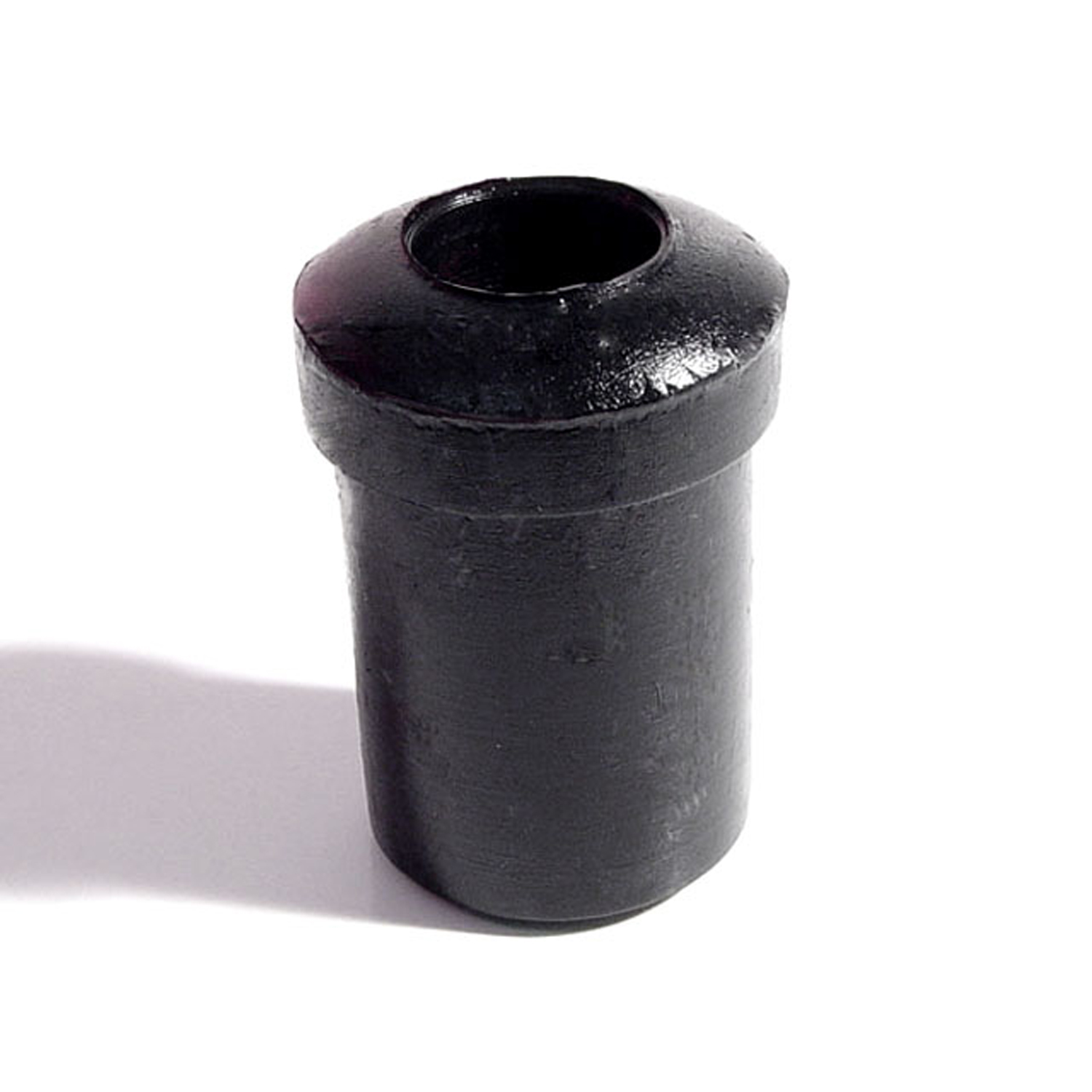 1955 Plymouth Belvedere Spring and Shackle Bushing. 1" bottom O.D-BN 20Spring and Shackle Bushing. 1" bottom O.D. X 1-5/8" high, with 9/16" I.D. Each
1955 Plymouth Belvedere Spring and Shackle Bushing. 1" bottom O.D-BN 20Spring and Shackle Bushing. 1" bottom O.D. X 1-5/8" high, with 9/16" I.D. Each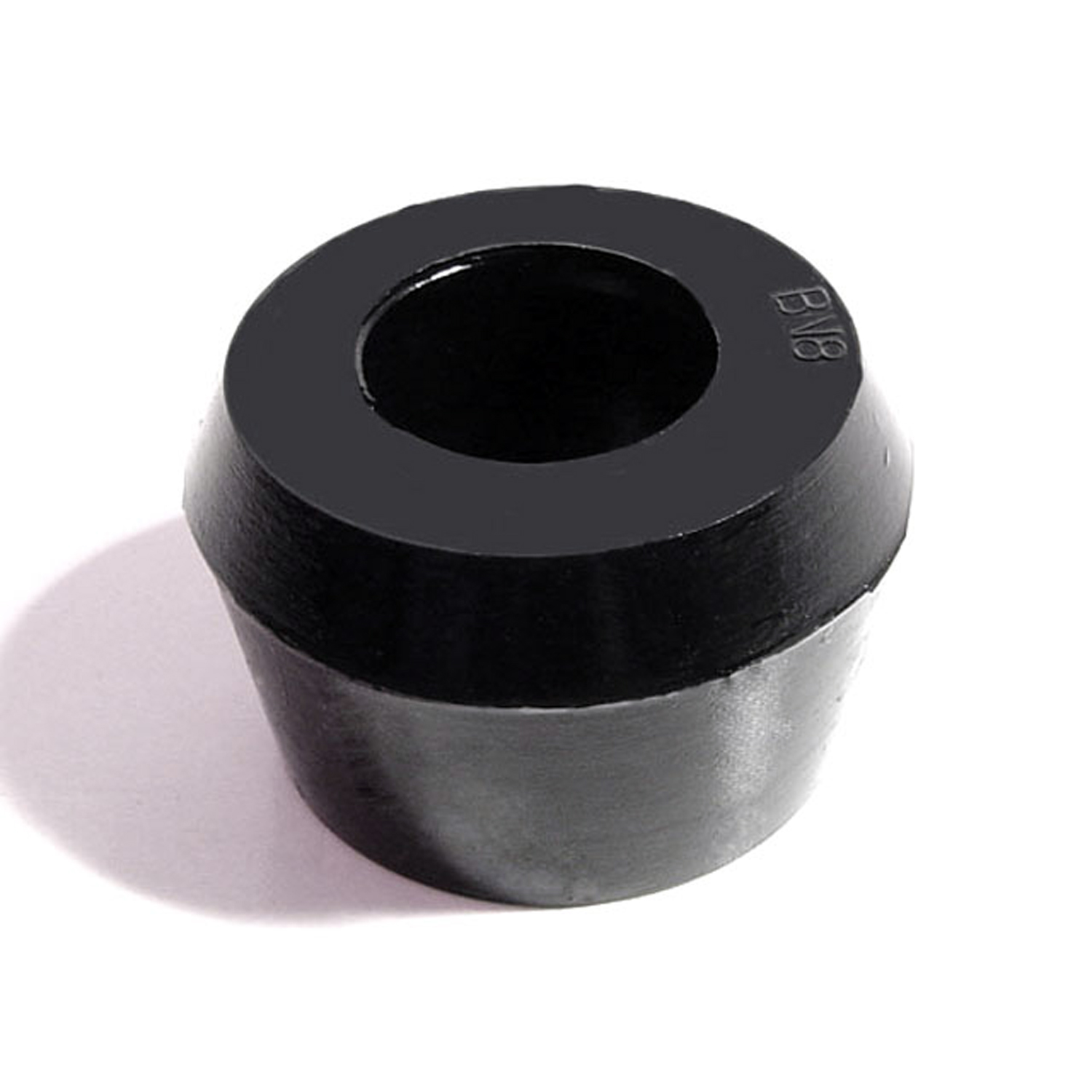 1955 Plymouth Belvedere Shock Absorber Grommet. 1-1/4" bottom O.D-BN 8Shock Absorber Grommet. 1-1/4" bottom O.D., 1" high, with 3/4" I.D. Each
1955 Plymouth Belvedere Shock Absorber Grommet. 1-1/4" bottom O.D-BN 8Shock Absorber Grommet. 1-1/4" bottom O.D., 1" high, with 3/4" I.D. Each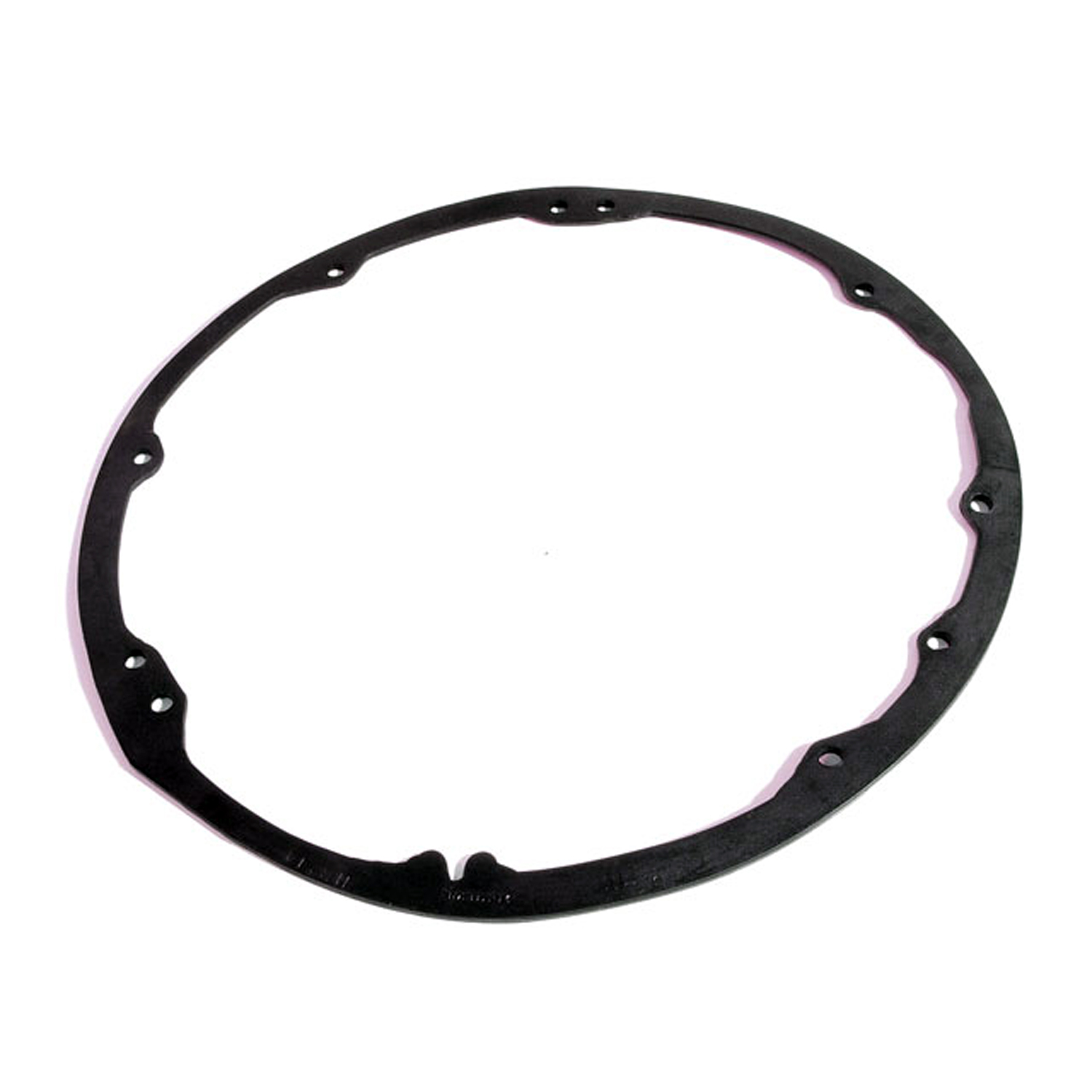 1955 Plymouth Belvedere Headlight Ring Seal. 8-3/8" O.D., 7-3/4" I.D. Pair-HR 14Headlight Ring Seal. 8-3/8" O.D., 7-3/4" I.D. Pair
1955 Plymouth Belvedere Headlight Ring Seal. 8-3/8" O.D., 7-3/4" I.D. Pair-HR 14Headlight Ring Seal. 8-3/8" O.D., 7-3/4" I.D. Pair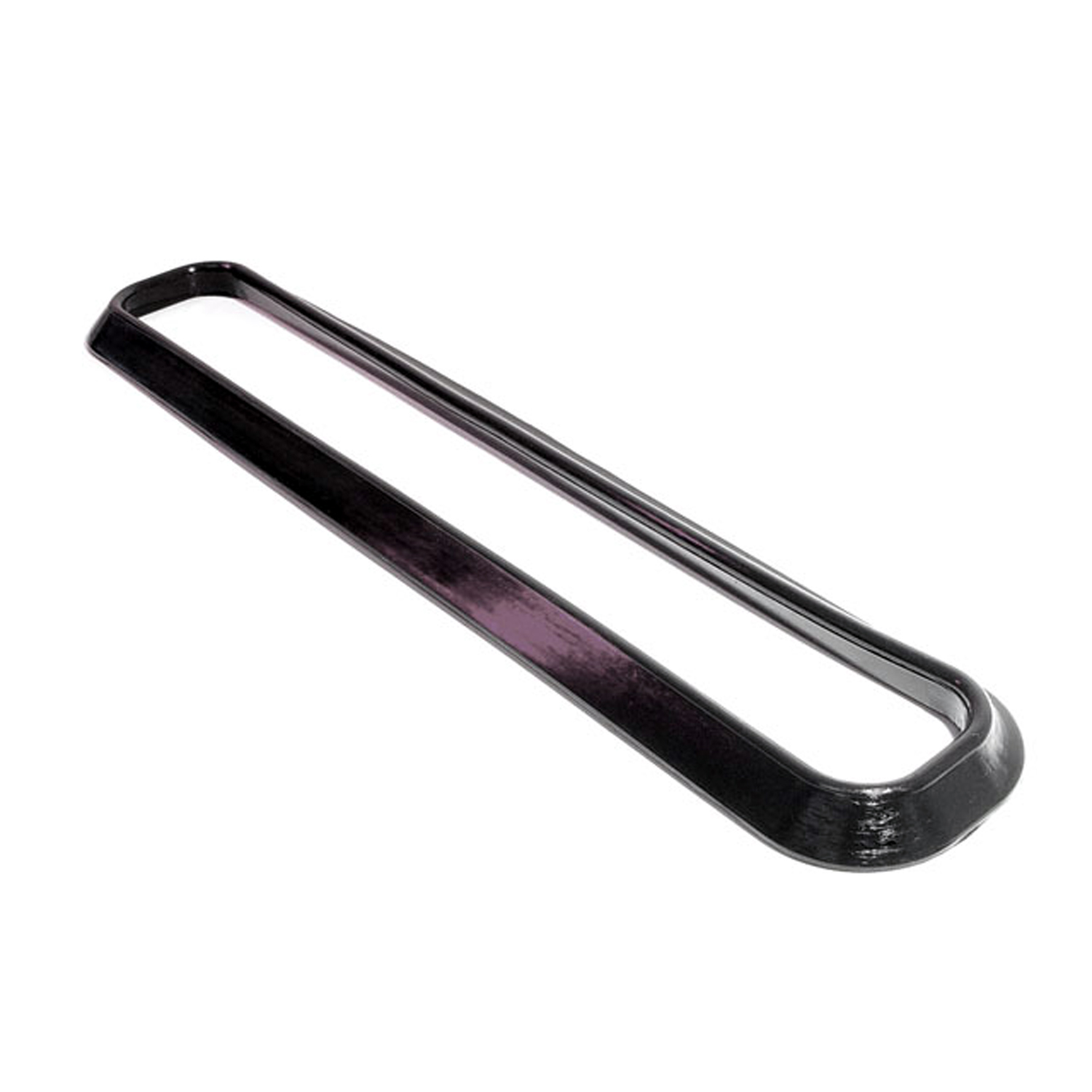 1955 Plymouth Belvedere Cowl Vent Seal. 3-1/4" wide X 16-7/8" long-RP 100-WCowl Vent Seal. 3-1/4" wide X 16-7/8" long. Replaces OEM #1593468. Each
1955 Plymouth Belvedere Cowl Vent Seal. 3-1/4" wide X 16-7/8" long-RP 100-WCowl Vent Seal. 3-1/4" wide X 16-7/8" long. Replaces OEM #1593468. Each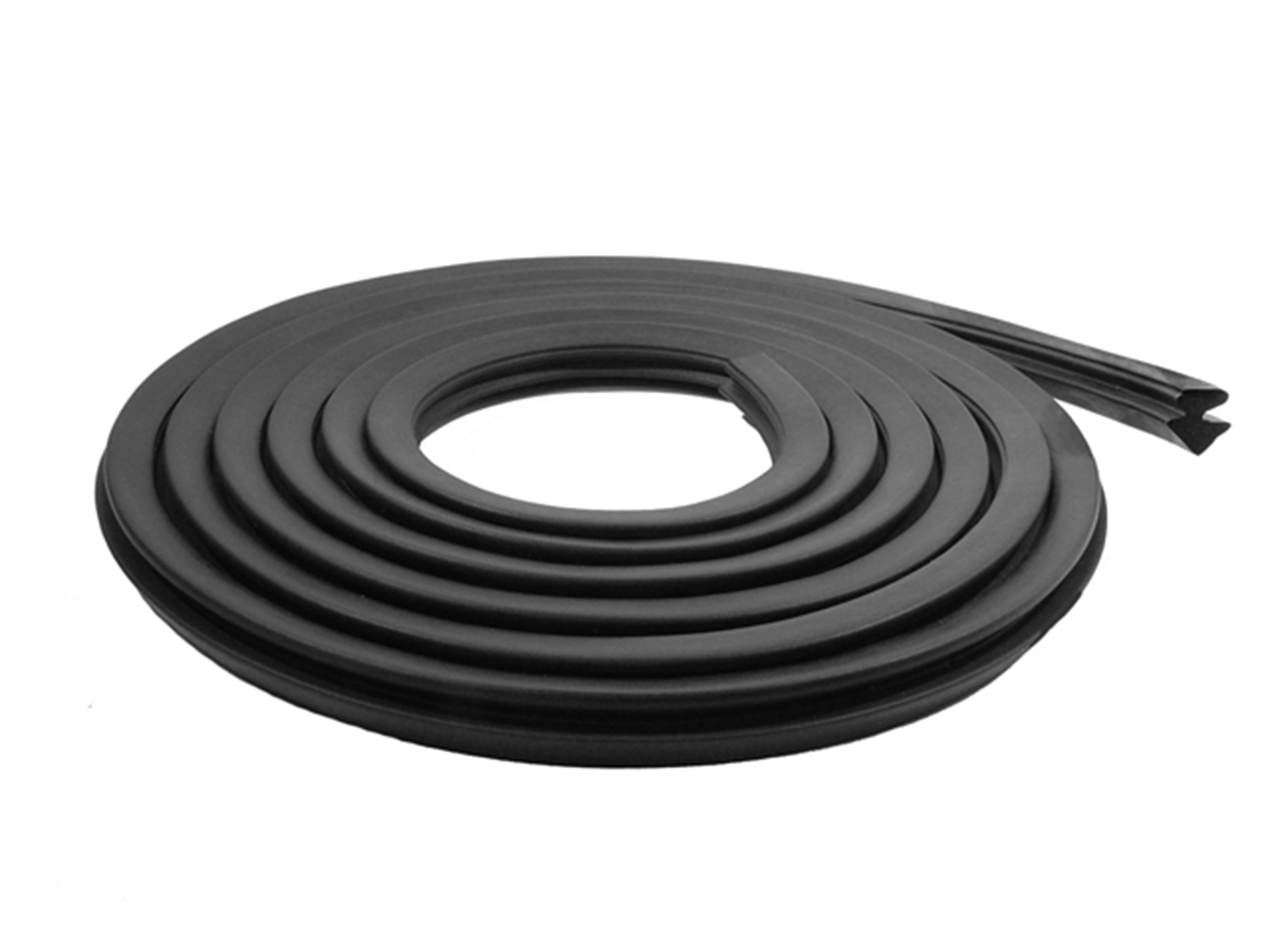 1955 Plymouth Belvedere Trunk Seal. Each-TK 64-16Trunk Seal. Each
1955 Plymouth Belvedere Trunk Seal. Each-TK 64-16Trunk Seal. Each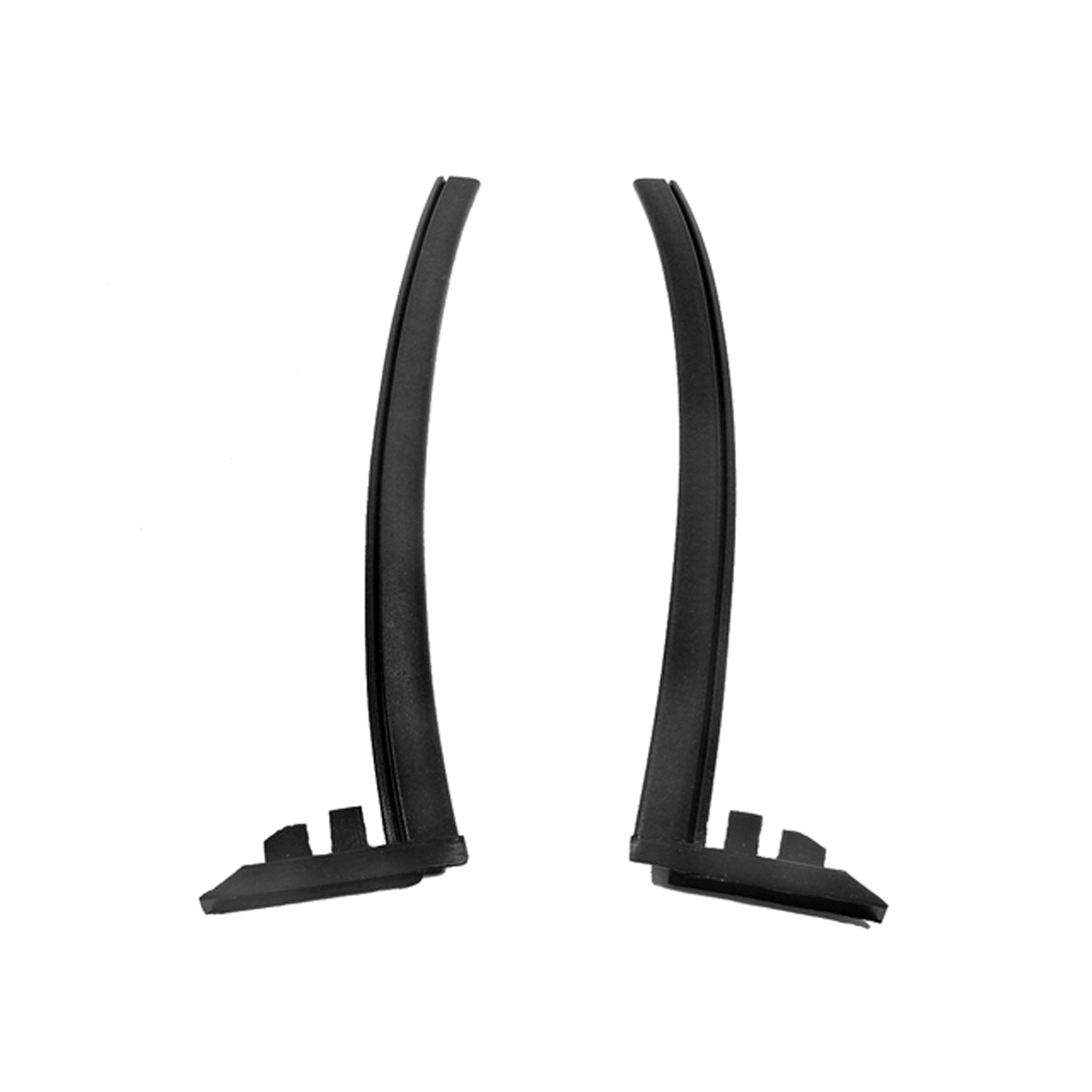 1955 Plymouth Belvedere Rear Roll-Up Side Quarter Window Seals (fits some models)-VS 7-BRear Roll-Up Side Quarter Window Seals (fits some models). Pair R&L
1955 Plymouth Belvedere Rear Roll-Up Side Quarter Window Seals (fits some models)-VS 7-BRear Roll-Up Side Quarter Window Seals (fits some models). Pair R&L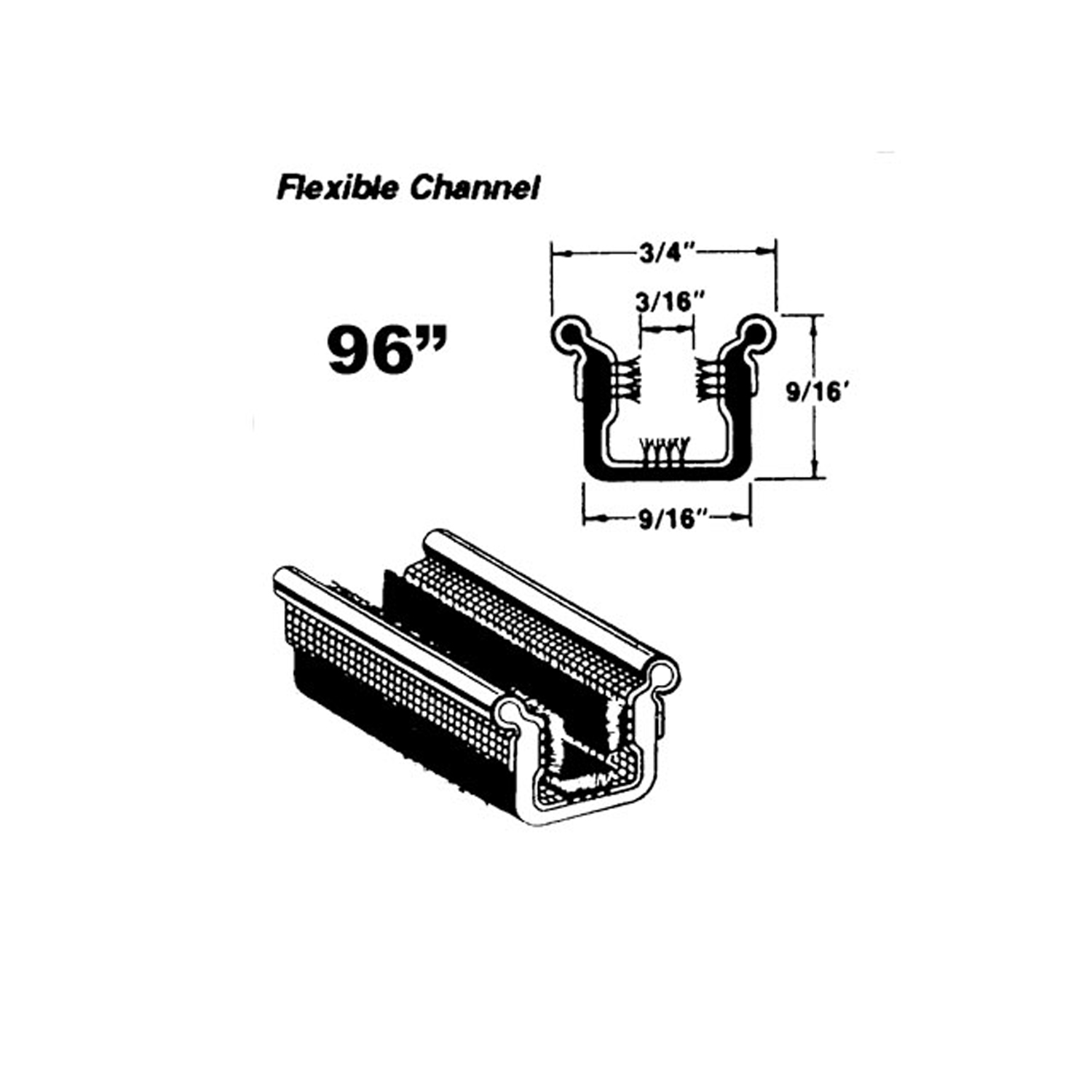 1955 Plymouth Belvedere Flexible window channel-WC 10-96Flexible window channel. Rubber covered with mohair lining and stainless steel bead. 96 in. long. Each. NOTE: $20 special shipping charge applies for domestic orders. Call or email for overseas shipping costs. Part can be sectioned in two or three equal lengths to reduce overseas shipping costs.
1955 Plymouth Belvedere Flexible window channel-WC 10-96Flexible window channel. Rubber covered with mohair lining and stainless steel bead. 96 in. long. Each. NOTE: $20 special shipping charge applies for domestic orders. Call or email for overseas shipping costs. Part can be sectioned in two or three equal lengths to reduce overseas shipping costs.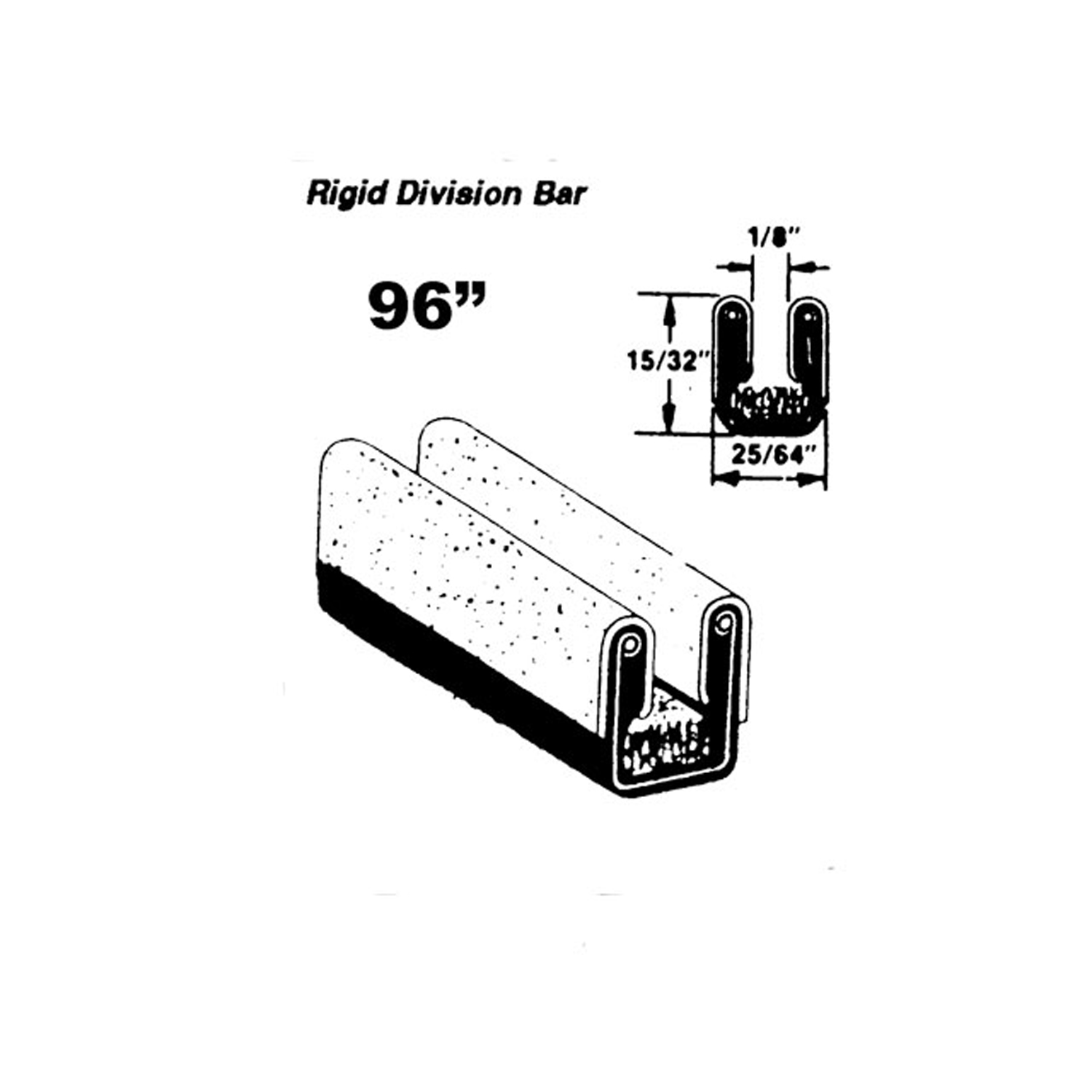 1955 Plymouth Belvedere Rigid division-bar run channel-WC 31-96Rigid division-bar run channel. Made with very soft felt lining. Used on front and rear door side windows. 96 in. long. Each. NOTE: $20 special shipping charge applies for domestic orders. Call or email for overseas shipping costs. Part can be sectioned in two or three equal lengths to reduce overseas shipping costs.
1955 Plymouth Belvedere Rigid division-bar run channel-WC 31-96Rigid division-bar run channel. Made with very soft felt lining. Used on front and rear door side windows. 96 in. long. Each. NOTE: $20 special shipping charge applies for domestic orders. Call or email for overseas shipping costs. Part can be sectioned in two or three equal lengths to reduce overseas shipping costs.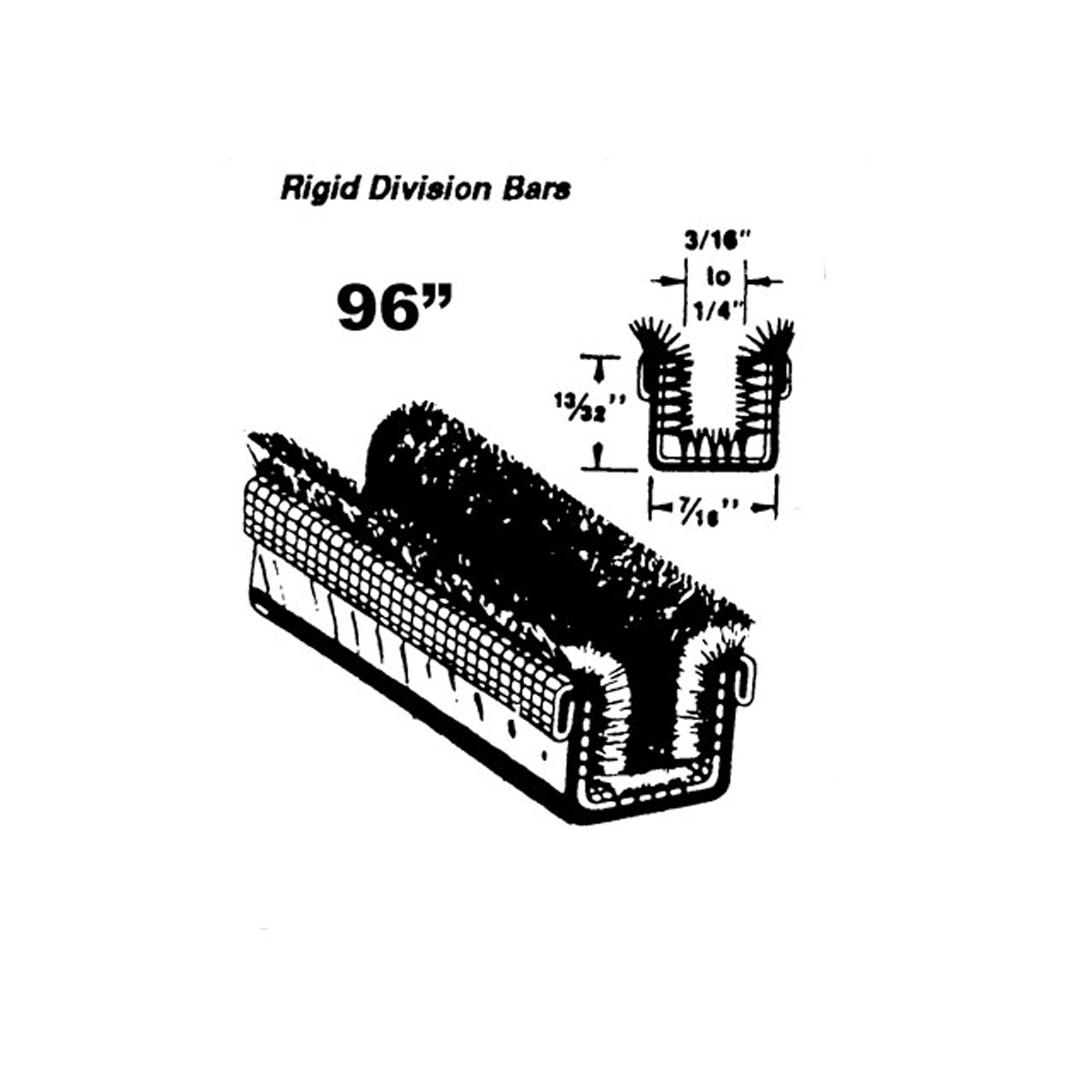 1955 Plymouth Belvedere Rigid division-bar channel. Unbeaded. 96 in. long. Each-WC 41-96Rigid division-bar channel. Unbeaded. 96 in. long. Each. NOTE: $20 special shipping charge applies for domestic orders. Call or email for overseas shipping costs. Part can be sectioned in two or three equal lengths to reduce overseas shipping costs.
1955 Plymouth Belvedere Rigid division-bar channel. Unbeaded. 96 in. long. Each-WC 41-96Rigid division-bar channel. Unbeaded. 96 in. long. Each. NOTE: $20 special shipping charge applies for domestic orders. Call or email for overseas shipping costs. Part can be sectioned in two or three equal lengths to reduce overseas shipping costs.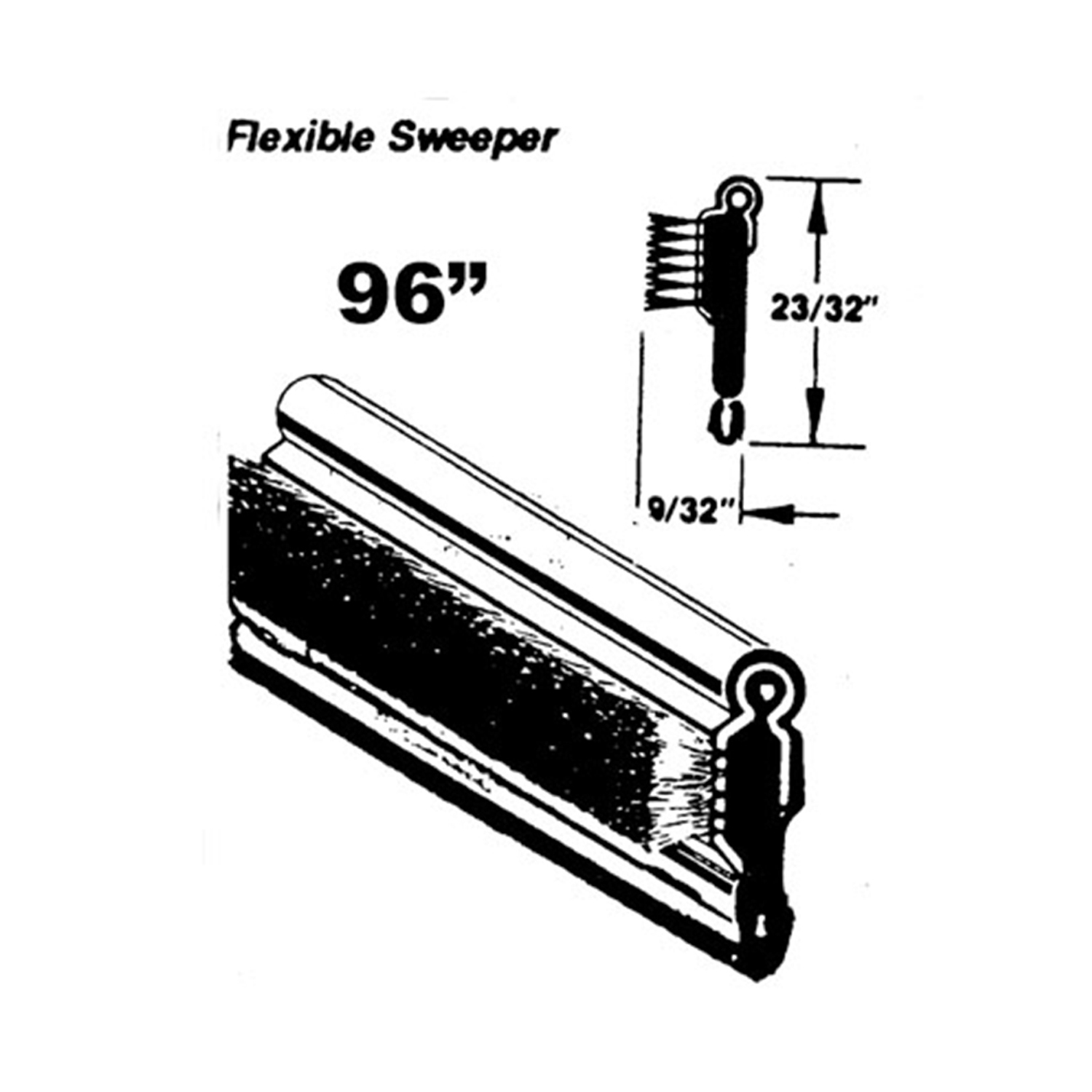 1955 Plymouth Belvedere Flexible window sweeper. Made with stainless steel bead-WC 4-96Flexible window sweeper. Made with stainless steel bead. 96 in. long. Each. NOTE: $20 special shipping charge applies for domestic orders. Call or email for overseas shipping costs. Part can be sectioned in two or three equal lengths to reduce overseas shipping costs.
1955 Plymouth Belvedere Flexible window sweeper. Made with stainless steel bead-WC 4-96Flexible window sweeper. Made with stainless steel bead. 96 in. long. Each. NOTE: $20 special shipping charge applies for domestic orders. Call or email for overseas shipping costs. Part can be sectioned in two or three equal lengths to reduce overseas shipping costs.Why Choose Metro?
For over 100 years, Metro Moulded Parts has been the pinnacle of quality in classic car restoration parts. Our commitment to precision and authenticity in every component ensures a perfect fit and an OEM-level appearance.
- Expert Craftsmanship & Quality: Each part is a testament to our dedication to reliability and perfection, crafted from original designs and thoroughly tested.
- Advanced Technology: We use cutting-edge techniques to create flawless, long-lasting parts that surpass others in performance.
- SuperSoft Sponge – The Ultimate Door Seal: Not only are our door seals 30% softer than competitors', but they're also guaranteed to never leak. They effectively reduce wind and road noise, enhancing your classic car's comfort and driving experience.
- Proudly American: Our parts are a product of American craftsmanship, made in the USA with a spirit of excellence and heritage.
- Unrivaled Warranty: We back our products with a 30-year industry-leading warranty, a testament to our confidence in their quality.
Join us in preserving the legacy of classic cars with parts that are crafted for perfection, not just made.

